All Stories
-
 Plants
PlantsCryopreservation is not sci-fi. It may save plants from extinction
Not all plants can be stored in a seed bank. Cryopreservation offers an alternative, but critics question whether this form of conservation will work.
By Sujata Gupta -
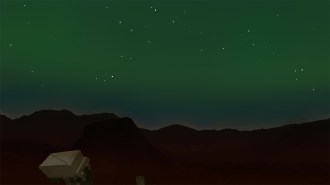 Space
SpacePerseverance takes the first picture of a visible Martian aurora
A faint yet visible Martian aurora is the first instance of the phenomenon spotted from another planet's surface.
By Nikk Ogasa -
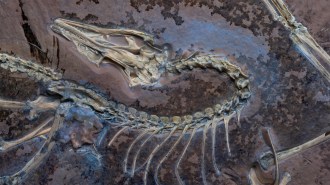 Paleontology
PaleontologyThis exquisite Archaeopteryx fossil reveals how flight took off in birds
Analyses unveiled never-before-seen feathers and bones from the first known bird, strengthening the case that Archaeopteryx could fly.
-
 Health & Medicine
Health & MedicineHHS says new vaccines should be tested against placebos. They already are
Placebo testing has been part of the process since the 1940s. It’s unclear what additional measures would achieve — but it may slow development.
-
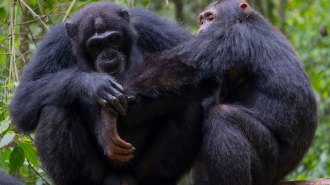 Animals
AnimalsWild chimpanzees give first aid to each other
A study in Uganda shows how often chimps use medicinal plants and other forms of health care — and what that says about the roots of human medicine.
-
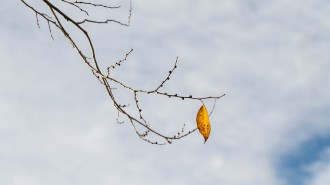 Plants
PlantsA leaf’s geometry determines whether it falls far from its tree
Shape and symmetry help determine where a leaf lands — and if the tree it came from can recoup the leaf’s carbon as it decomposes.
-
 Health & Medicine
Health & MedicineHumans have shockingly few ways to treat fungal infections
It's not quite as bad as The Last of Us. But progress has been achingly slow in developing new antifungal vaccines and drugs.
-
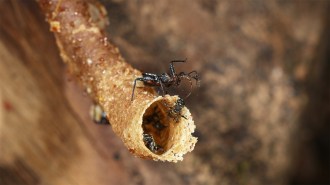 Animals
AnimalsThis tool-wielding assassin turns its prey’s defenses into a trap
This assassin bug's ability to use a tool — bees’ resin — could shed light on how the ability evolved in other animals.
-
 Chemistry
ChemistryA chemical in plastics is tied to heart disease deaths
In 2018, over 350,000 excess heart disease deaths were linked to phthalates. More research is needed to fully understand the chemicals' effects.
By Skyler Ware -
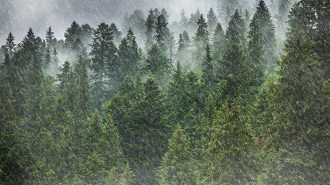 Environment
EnvironmentSkyborne specks of life may influence rainfall patterns
A study of weather on a mountain in Greece reveal that bioparticles in the sky may drive fluctuations in rainfall patterns more broadly.
By Nikk Ogasa -
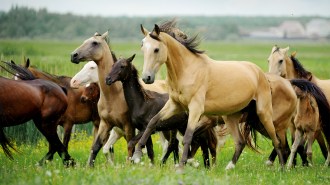 Archaeology
ArchaeologyNeandertals may have hunted in horse-trapping teams 200,000 years ago
A revised age for a German site indicates that our evolutionary cousins organized horse ambushes around 200,000 years ago.
By Bruce Bower -
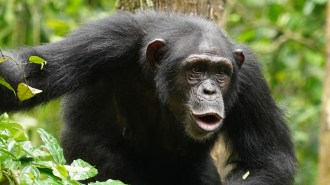 Animals
AnimalsChimp chatter is a lot more like human language than previously thought
Chimpanzees combine hoots, calls and grunts to convey far more concepts than with single sounds alone. It may be a first among nonhuman animals.
By Jake Buehler